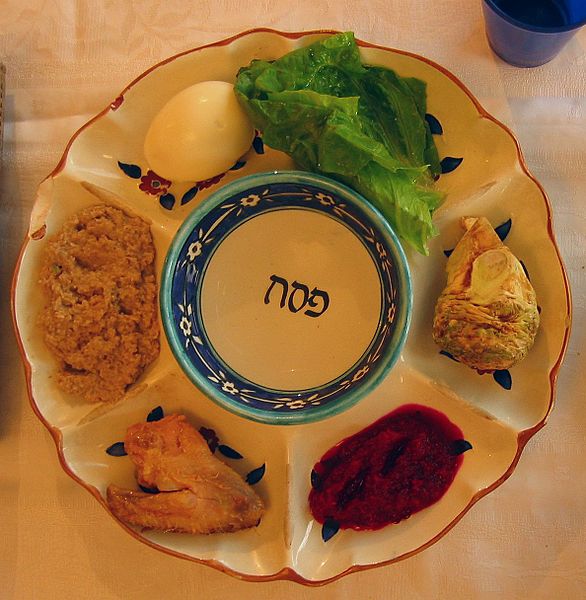13 Mar. God punishes the Egyptians on the first Passover
“Then Moses called all the elders of Israel together and told them, ‘Get the animals for your families and kill the lamb for the Passover.’”
“’Take a branch of the hyssop plant, dip it into the bowl filled with blood, and then wipe the blood on the sides and tops of the doorframes. No one may leave that house until morning. When the LORD goes through Egypt to kill the Egyptians, he will see the blood on the sides and tops of the doorframes, and he will pass over that house. He will not let the one who brings death come into your houses and kill you.’”
“’You must keep this command as a law for you and your descendants from now on. Do this when you go to the land the LORD has promised to give you.’”
“’When your children ask you, “Why are we doing these things?” you will say, “This is the Passover sacrifice to honour the LORD. When we were in Egypt, the LORD passed over the houses of Israel, and when he killed the Egyptians, he saved our homes.”’”
“Then the people bowed down and worshipped the LORD. They did just as the LORD commanded Moses and Aaron.”
“At midnight the LORD killed all the firstborn sons in the land of Egypt – from the firstborn of the king who sat on the throne to the firstborn of the prisoner in jail. Also, all the firstborn farm animals died.”
“The king, his officers and all the Egyptians got up during the night because someone had died in every house. So there was a loud outcry everywhere in Egypt.”
(Exodus 12:21-30)

Moses gave God’s commands about the coming Passover to the elders of Israel. He instructed them to tell all the Israelites to get a suitable unblemished one-year-old sheep or goat and to sacrifice this ‘Passover lamb’ that evening.
The Israelites were told to dip a hyssop branch into the lamb’s blood and smear some of the blood on their lintels and doorposts so the angel of death would pass over their house without harming them.
The people then ate the roasted lamb and unleavened bread in preparation for their long journey, and worshipped God by thanking him for his saving grace.
Then, at midnight, the LORD struck down all the Egyptian firstborn, “from the firstborn of the king who sat on the throne to the firstborn of the prisoner in jail.” (Exodus 12:29) No family in Egypt escaped God’s punishment, and in every Egyptian household there was great sorrow and mourning.
In future years – right up to the present day – when Jews celebrated this first Passover at their annual Feast of Unleavened Bread, the children present would ask their parents, “Why are we doing these things?” And their parents would reply, “This is the Passover sacrifice to honour the LORD. When we were in Egypt, the LORD passed over the houses of Israel, and when he killed the Egyptians, he saved our homes.” (Exodus 12:26-27)
Even today, the Passover Supper (the ‘Seder Service’) is still very much a family affair where children are reminded of their Jewish ancestral history, and the evening includes children’s games such as looking for pieces of leaven, hunt the 'aphikomen’ (the hidden middle piece of matzo), and songs such as ‘Dayennu’ (‘It would have been enough’) and ‘The ballad of the four sons’.
The photo shows a Passover plate prepared for the Seder Service, which usually includes (clockwise from the bottom) ‘zeroah’ (a piece of lamb shank as a reminder of the Passover lamb), ‘matza’ (some unleavened bread), ‘beytza’ (a boiled egg symbolising mourning at the loss of the Jerusalem temple), ‘karpas’ (parsley or celery symbolising the hyssop used to smear blood on the doorposts), ‘haroseth’ (a sweet mixture of apples and chopped nuts as a sign of sweet hope) and ‘maror’ (bitter herbs as a reminder of the bitterness of slavery).
You can read more about the Passover festival @ https://www.thebiblejourney.org/biblejourney2/25-the-israelites-journey-from-egypt-to-mt-sinai/egypt-suffers-ten-plagues
